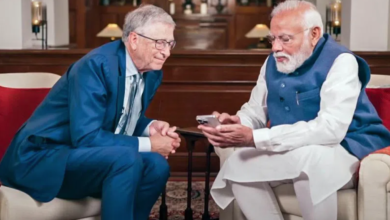IBM employee on sick leave for past 15 years sues company for no salary hike

Asenior IT professional who has been on sick leave since 2008 sued his company for discrimination because he did not receive a raise, as per a Telegraph report. Ian Clifford, who works at IBM, has reportedly been ill for the previous 15 years. His LinkedIn profile states that he has been ‘medically retired’ since 2013.
However, he said that because his income had not improved over the 15 years he had been unable to work, he was a victim of “disability discrimination.” The IT expert is guaranteed to make more than 54,000 pounds (US$67,300) year under an IBM health plan and will continue to do so until age 65.
The employee countered that the health plan was ”not generous enough” because his income would eventually decline owing to inflation.
Clifford initially took a sick vacation in September 2008, and circumstances stayed the same until he filed a grievance in 2013. In response to his complaint, IBM provided him with a “compromise agreement” in which he was added to the company’s disability plan rather than being fired. A worker who is unable to work under the plan is not fired; instead, they are still considered employees and are under “no obligation to work.”
Anyone enrolled in the plan is entitled to receive 75% of the agreed-upon wages until recuperation, retirement, or death, whichever occurs first. In his case, the agreed-upon compensation was 72,037 pounds, which meant that starting in 2013, he would receive 54,028 pounds after a 25% deduction. Until he turned 65 and was eligible for retirement, the strategy was set in place for more than 30 years.
He filed a lawsuit against IBM in February 2022, alleging handicap discrimination, before an employment tribunal. The purpose of the arrangement, he continued, “was to provide security to employees who could not work; that was not achieved if payments were frozen indefinitely.”
Unexpectedly, his claims were rejected by an employment tribunal, with the judge noting that he had received “favourable treatment” and a “very substantial benefit” in exchange for his testimony.







